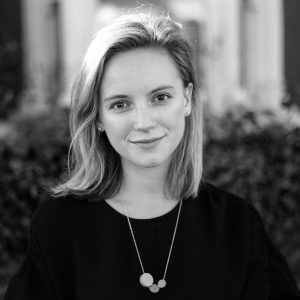Access and inclusion in education is key for those providing digital learning. Here, FutureLearn’s Isabel Drury, Partnership Manager, explains the reasons why it should be a core attribute and some of the ways they are responding to needs.

Isabel Drury, FutureLearn
What is digital accessibility?
People with sensory, physical and cognitive impairments face significant barriers when they use digital technologies. This presents challenges both for users of technology, and for the web developers, content creators and designers who build digital products. In the world of education, MOOCs (massive, open, online courses) have opened up a wider public conversation about access and inclusion in education. At FutureLearn we strive to provide a learning platform that is accessible to the widest possible audience, regardless of technology or ability.
Why does digital accessibility matter?
In online education, digital accessibility is central to creating an inclusive learning environment that maximises participation. Digital accessibility principles put the user, in this case the learner, front and centre in the design process of a digital product. At FutureLearn our Accessibility and Inclusion policy aims to ensure that as many learners as possible can access the course content, participate fully in learning activities, and achieve the learning objectives of the courses.
Key accessibility principles for online courses
Accessible online services benefit everyone
We believe passionately that an accessible course does not only have benefits for learners with impairments. For example, all videos in FutureLearn courses are accompanied by a text transcript. This is not just useful to learners who are deaf or hard of hearing, but helps everyone – it’s faster to read than to watch the video; you don’t need an internet connection to read the transcript; and that transcript can be searched for key terms.
Similarly, we recommend that courses are written in plain language, avoiding jargon, figures of speech and acronyms. This aids learners on the neurodiverse spectrum, but also anybody who has English as a second language – learners come to FutureLearn from over 200 countries and two-thirds live outside the UK.
Embracing a global learning community
MOOCs have the power to connect learners across different continents and cultures. As a learning platform, we have a responsibility to learners studying in countries where bandwidth is poor and data is expensive. This means that, where possible, all audio-visual material is available to download and watch or listen to without an internet connection. FutureLearn courses celebrate this diverse learning community through activities that encourage learners to share insights and perspectives from their own cultures and countries.
Listening to learners
Online learning is a continually evolving area, and we know that there’s much more we can do to develop truly inclusive learning experiences. We’re always aiming to improve accessibility, both from a technical and learning design point of view – whether for a learner using Assistive Technology, or a learner studying from their mobile device in Nigeria.
Find out more
Learn more about digital accessibility in the online course Digital Accessibility: Enabling Participation in the Information Society, from the University of Southampton and MOOCAP, the MOOCs for Accessibility Partnership.



